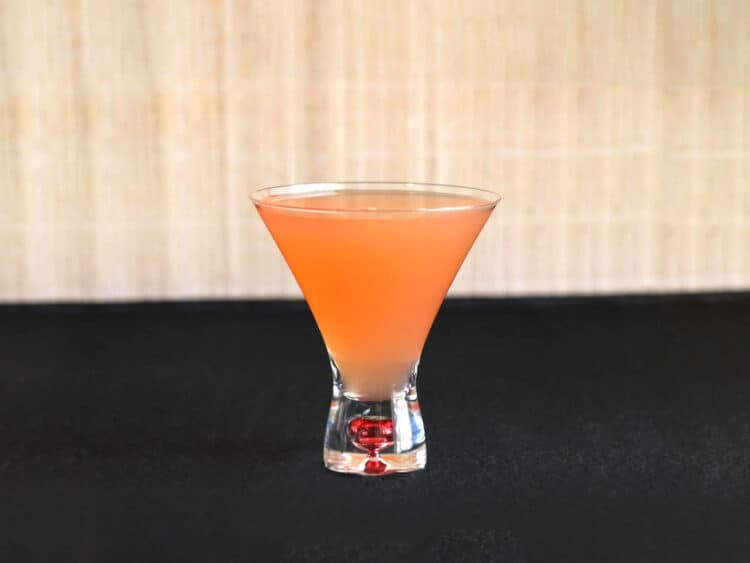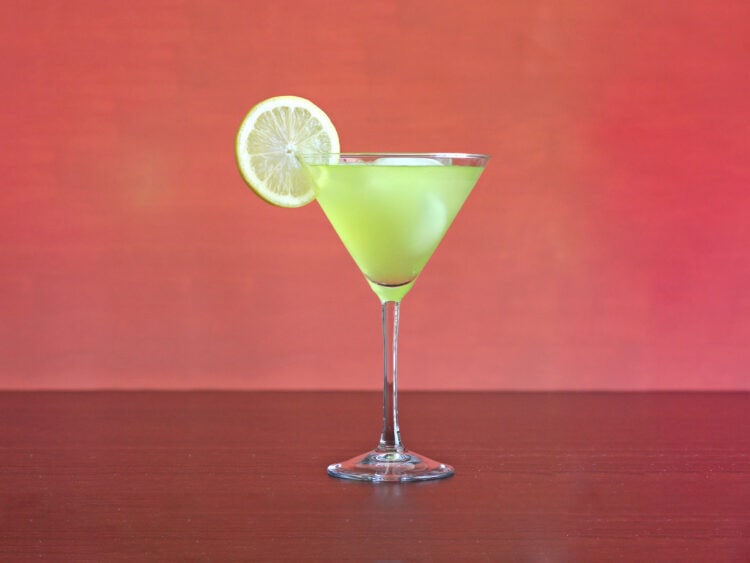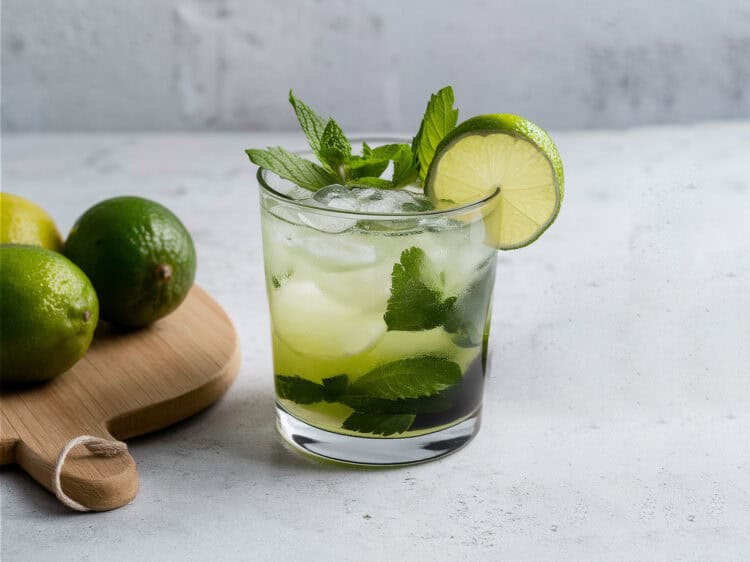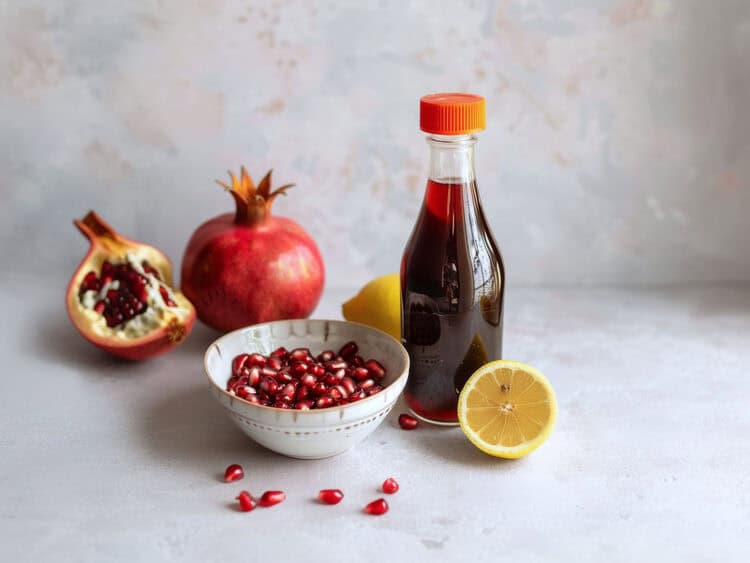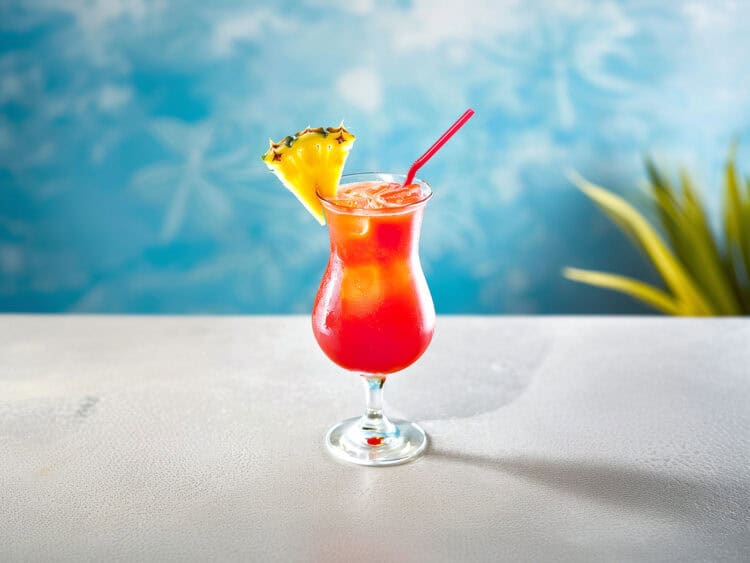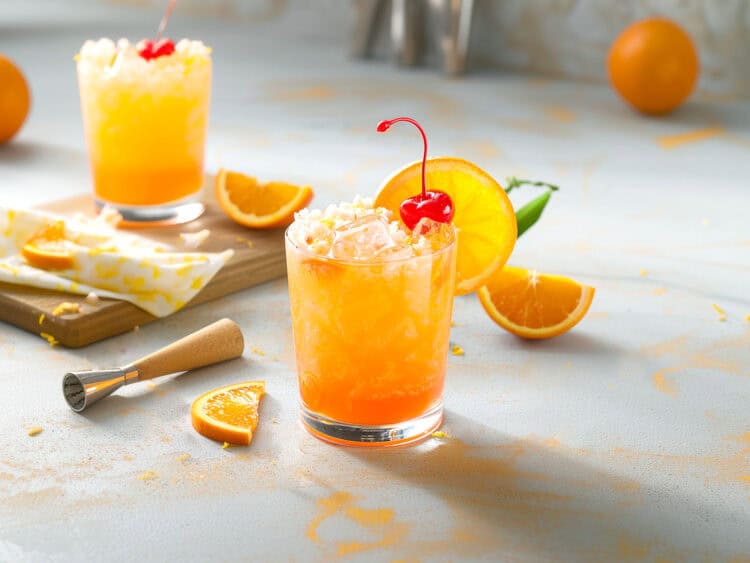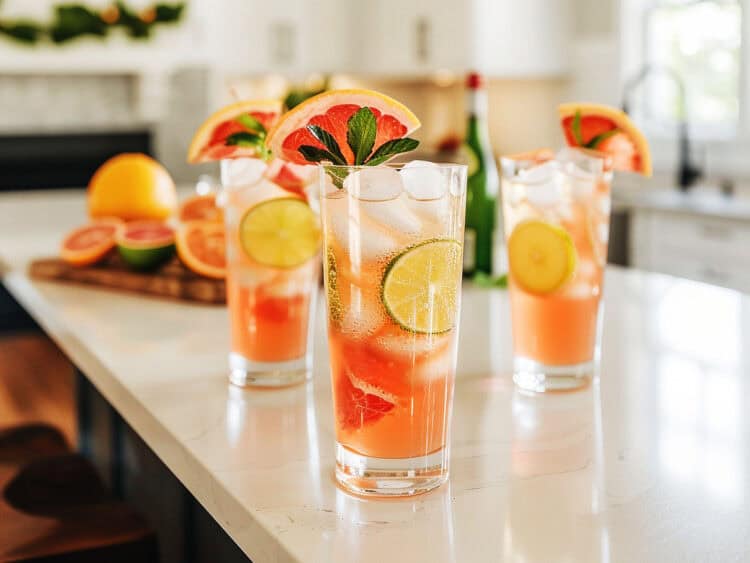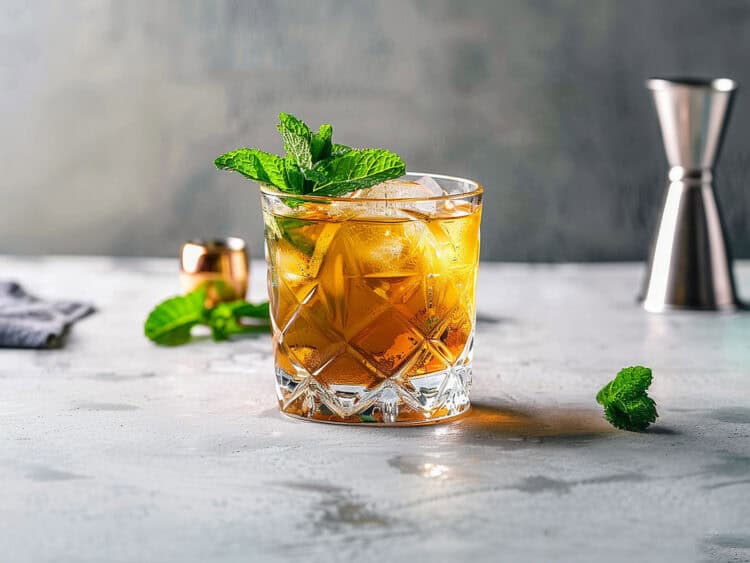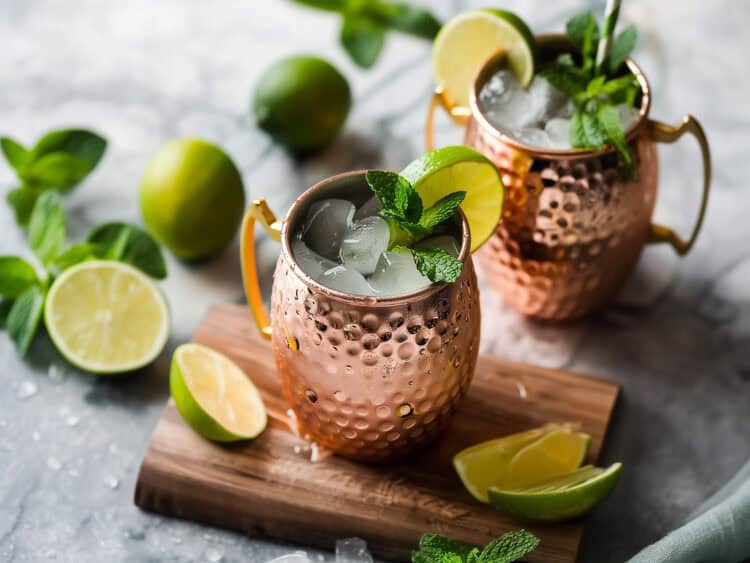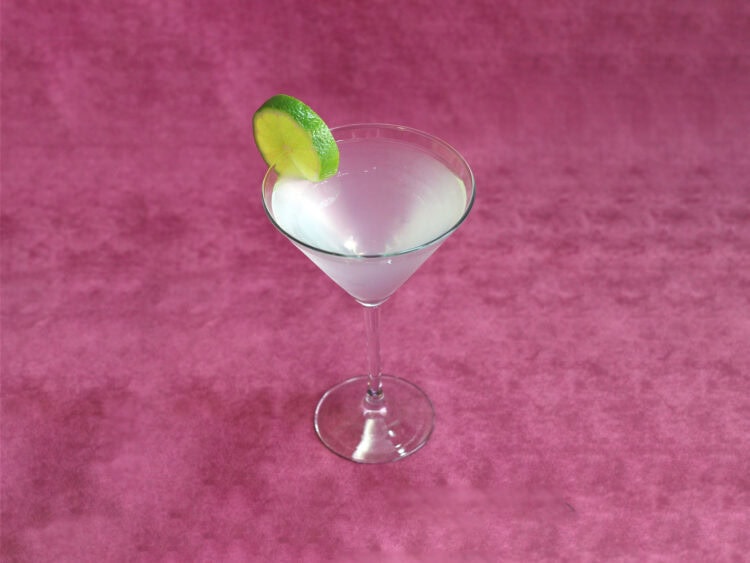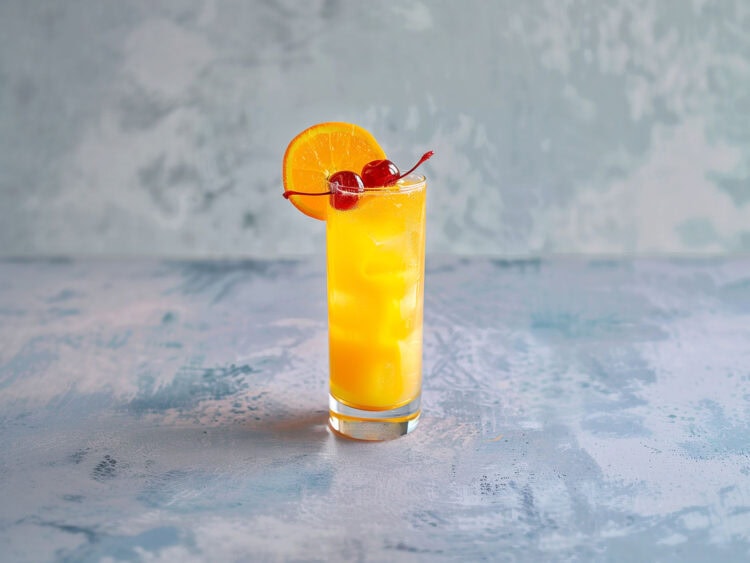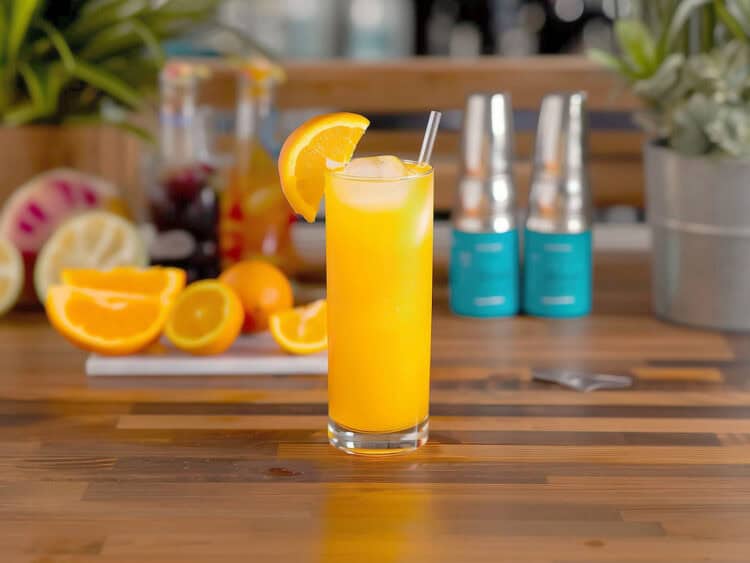How to Use Dehydrated Fruit for Cocktails
We may get commissions for purchases made through links in this post.
Dehydrated fruit is an exciting new trend in cocktail presentation. From adding a pop of color to infusing unique flavors, dehydrated fruit can take your mixology to the next level.
It’s also a great way to cut down on food waste. When you don’t use a whole fruit, dehydrate it so you can use it the next time you make drinks.
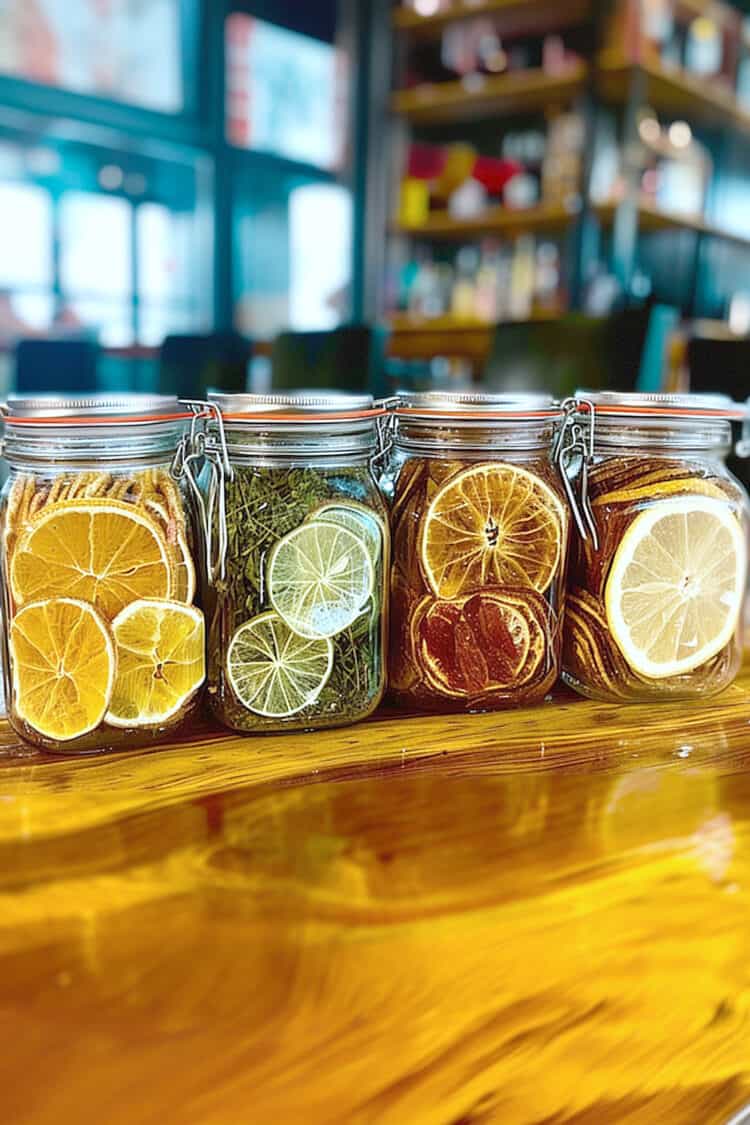
The Art of Dehydration
Dehydration is a process of drying out fruits to remove their water content. This gives you a preserved form of fruit that still has all its original flavor and nutrition.
This method not only prolongs the shelf life of fruits but also concentrates their natural sugars, intensifying their taste. Dehydrated fruits are lightweight with a crisp texture and vibrant colors, making them an ideal choice for cocktail garnishes.
How to Serve
The way you incorporate dehydrated fruit into your cocktail presentation can significantly impact its overall appeal. You can leave them in their dehydrated state and put them on the glass rim, on skewers, or floated on top of the drink, like traditional fruit garnishes.
Another option is to muddle them with liquid ingredients at the bottom of a glass or shaker as part of the cocktail preparation. A third is to rehydrate them before serving and use them as traditional fruit garnishes.
with powdered dehydrated fruit or skewering dried fruit pieces on cocktail picks can instantly elevate the visual allure of your drinks.
The possibilities are endless, so don’t be afraid to experiment and find your signature garnishing style.
How to Make Dehydrated Fruit
You can buy dehydrated fruit slices online or at some local stores. Or you can make your own, using a food dehydrator at home.
Get Started
Slice your fruits into thin discs or pretty shapes using cookie cutters. Fruits like lemons, oranges, limes, apples, strawberries, grapes, pineapple, kiwi and mango all make great bases for dehydrated garnishes.
Lay the fruit pieces out in a single layer on mesh dehydrator sheets or on a baking sheet lined with parchment paper.
Dehydrate the Fruit
Place the fruit sheets in your dehydrator at 115°F and let the machine do its work removing moisture slowly for 6-12 hours. Check periodically to make sure the fruit isn’t browning.
Fruit is properly dehydrated when no moisture is left and pieces are shrunk and slightly rubbery.
Dress It Up
You can leave fruit as is or coat it before fully drying for extra flair. Try dipping fruit in honey water or citric acid solution for sweet-and-sour candy garnishes.
For savory garnishes, brush herbs, spices or salty seasonings onto the fruit pieces before dehydrating.
Store for Cocktails
Once fruit is fully dried, let pieces cool completely before transferring to airtight jars or containers. Store for weeks to months.
The shelf-stable fruit can stand in for ice cubes or be speared for garnishes in cocktails, lemonades, mocktails and infused waters. Get creative with your flavors and combinations!
Making It Beautiful
The saying “you eat (or in this case, drink) with your eyes first” couldn’t be more accurate in the world of mixology. Dehydrated fruit adds an amazing looking element to cocktails.
Picture the colors of dehydrated citrus wheels or the translucence of dried pineapple adorning your drinks. These eye-catching garnishes make your stunning-looking and also signal to your guests that they’re in for a sensory treat.
The simplest way to cut them is in wheels, which can later be cut further if you want.
Infusing Unique Flavors
These little gems give drinks a concentrated burst of flavor. When you use them as ingredients in a cocktail, or float one as a garnish on top of the liquid, they can impart intense fruity notes.
From dehydrated strawberries lending a sweet-tart essence to dehydrated mangoes adding a tropical twist, these fruits can transform a mundane cocktail into a memorable libation. Experiment with different fruit varieties to discover exciting flavor combinations that will leave your patrons craving for more.
Adding Crunch or Chew
The texture of a cocktail is just as important as its flavor. Dehydrated fruit gives your cocktails a delightful crunch or chewiness, depending on the type of fruit used.
This textural contrast adds depth to your drinks, creating a more enjoyable mouthfeel. Imagine sipping on a cocktail with a dehydrated peach slice that offers a satisfying crunch with every sip.
It’s these little details that set your cocktails apart and keep your customers coming back for more.
Practical Considerations
Store your dehydrated fruits in airtight containers in a cool, dry place to maintain their quality. Before use, rehydrate them if needed by soaking in water or alcohol to restore some of their original texture.
Pairing Suggestions
Certain fruits complement specific spirits and flavors exceptionally well. For instance, dehydrated orange slices are perfect for garnishing whiskey-based cocktails, while dehydrated raspberries contrast beautifully with gin-based drinks.
Sustainability and Cost-Effectiveness
Dehydrating fruit offers a sustainable approach to reducing food waste by prolonging the shelf life of fresh produce. Moreover, buying fruits in bulk when they’re in season and dehydrating them for later use can be a cost-effective strategy.
Last Updated:

